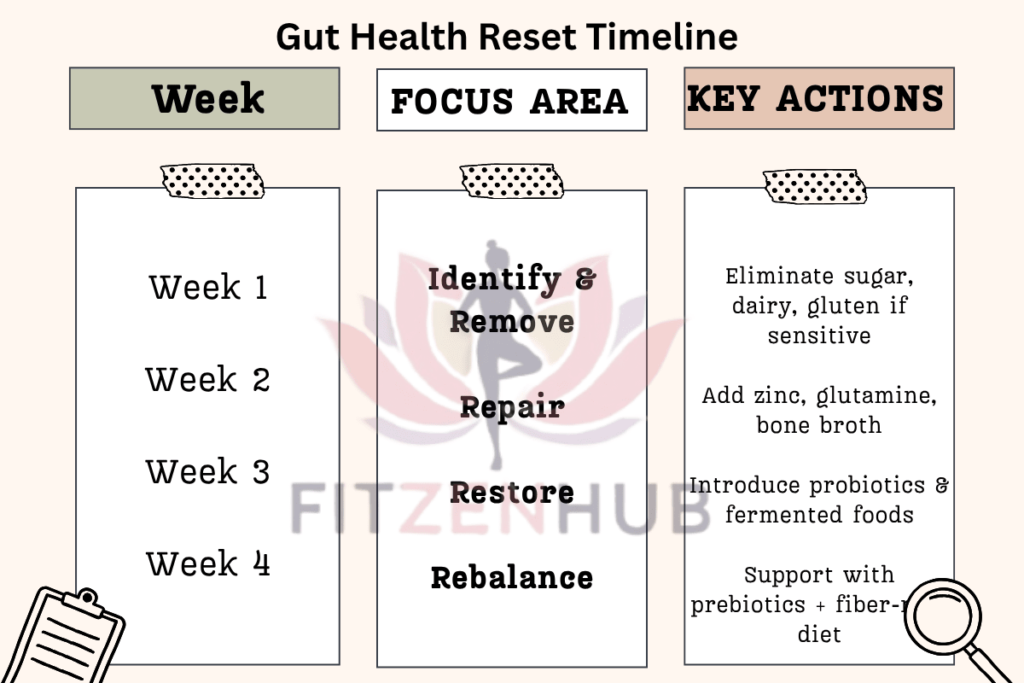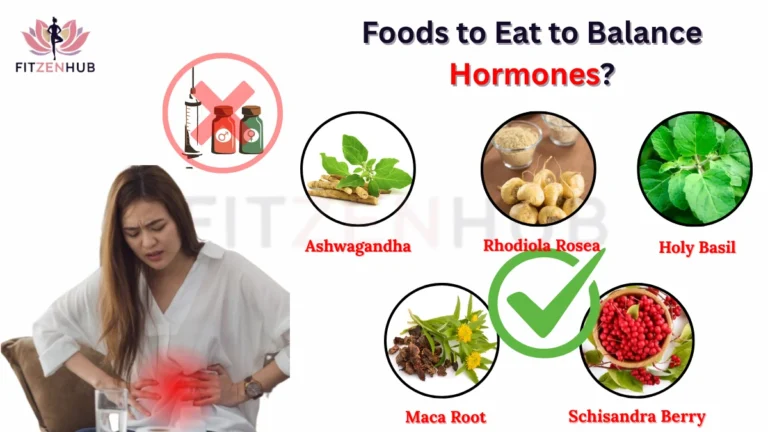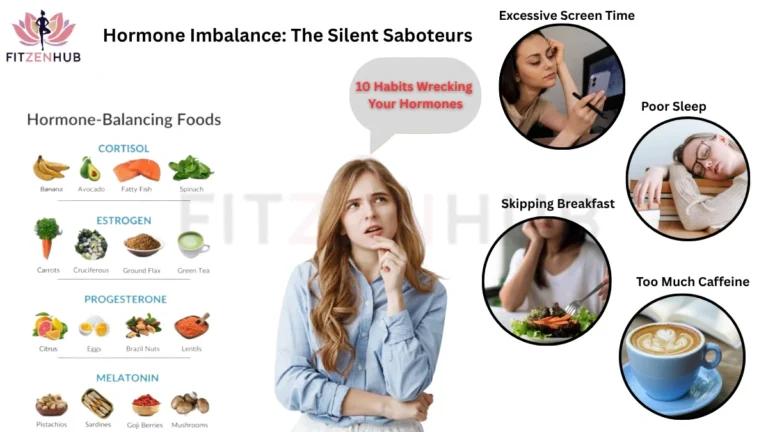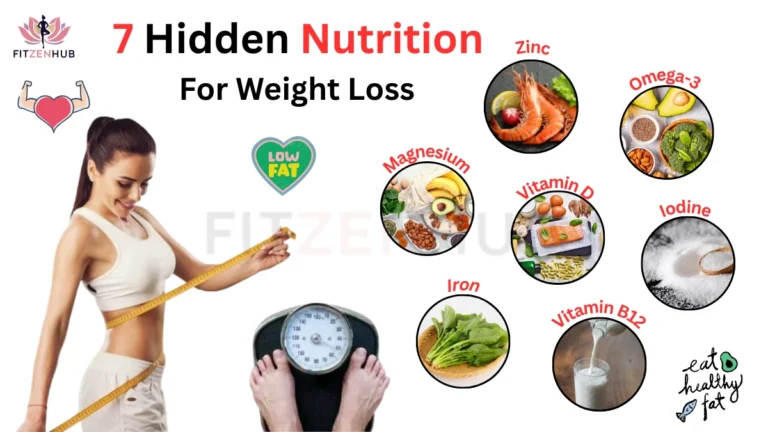Feeling drained no matter how much you sleep or exercise? Discover 8 hidden nutrient deficiencies silently sabotaging women’s energy & weight loss goals. Learn how to fix them naturally — fast. Backed by science, designed for results.
🔥 Intro: “Why Am I Always Tired… Even When I Sleep 8 Hours?”
You’re eating “pretty healthy,” trying to work out, even sleeping enough…
So why do you still feel tired all day and gain weight without explanation?
🧠 The truth?
Most women suffer from hidden nutritional deficiencies that slow metabolism, wreck hormones, and drain energy — but they go undiagnosed for years.
In this deep-dive, discover the 8 most common deficiencies silently holding women back — and exactly how to fix them starting this week.
⚠️ Section 1: The Silent Saboteurs — 8 Deficiencies That Drain Women’s Vitality
1. 🩸 Iron Deficiency — Especially in Active Women
- Why it matters: Low iron = poor oxygen circulation → brain fog, fatigue, weight gain
- Common in: Women with heavy periods, vegans, runners
- Symptoms: Cold hands, dizziness, short breath during light activity
- Fix it:
- Add grass-fed red meat 2–3x/week or lentils + spinach
- Supplement with chelated iron (with vitamin C for absorption)
- Pro tip: Get your ferritin levels checked (not just hemoglobin)

2. 🌿 Vitamin B12 — The Metabolism Kick-Starter
- What it does: Converts carbs into energy, supports nerves and brain
- Deficiency signs: Fatigue, numbness, low mood, sluggish weight loss
- Fix it:
- Sublingual B12 (methylcobalamin form)
- Eat eggs, dairy, nutritional yeast, or grass-fed liver
3. 🧂 Magnesium — The “Anti-Stress Mineral”
- Key for: Muscle relaxation, sleep quality, hormonal balance
- Deficiency symptoms: Muscle cramps, anxiety, poor sleep, sugar cravings
- Fix it:
- Take 200–400mg of Magnesium Glycinate or Malate
- Include almonds, pumpkin seeds, dark chocolate
4. ☀️ Vitamin D — The Hormone-like Powerhouse
- Why it’s vital: Regulates thyroid, mood, immunity, and fat metabolism
- Hidden impact: Low D → increased belly fat + PCOS symptoms
- Fix it:
- Get 15–20 mins of sun exposure daily
- Supplement with D3 + K2 (1000–5000 IU depending on levels)
- Test tip: Ask for 25(OH)D blood test to know your real status
5. 🧬 Zinc — The Metabolic Repair Agent
- Roles: Supports thyroid, boosts immunity, clears skin, controls hunger hormones
- Low zinc signs: Frequent illness, white spots on nails, thinning hair
- Fix it:
- Add oysters, pumpkin seeds, chickpeas
- Supplement with zinc picolinate (15–30mg/day)
6. ⚖️ Iodine — The Thyroid Spark Plug
- Why it matters: Thyroid controls calories burned at rest — sluggish thyroid = slow fat loss
- Warning: Low iodine + low selenium = thyroid dysfunction
- Fix it:
- Use iodized salt (just a pinch!)
- Add seaweed (kelp), dairy, eggs
- Don’t overdo it — too much iodine can backfire
7. 🧠 Omega-3 Fatty Acids — Fat That Burns Fat
- Function: Anti-inflammatory, brain-boosting, supports weight balance
- Deficiency signs: Dry skin, depression, poor focus, weight loss plateaus
- Fix it:
- Eat wild salmon, flaxseed, walnuts
- Supplement with high-quality triglyceride-form fish oil (EPA + DHA)
8. 🔄 Selenium — The Hormone Helper
- Why it’s crucial: Converts inactive thyroid hormone (T4) to active (T3)
- Low levels lead to: Hair thinning, poor temperature control, fatigue
- Fix it:
- Eat 2 Brazil nuts daily (yes, just 2!)
- Selenium-rich foods: eggs, sardines, sunflower seeds
👩⚕️ Section 2: Why U.S. Women Are More Deficient Than Ever
- Chronic dieting → nutrient depletion
- Birth control pills → deplete B vitamins, zinc, magnesium
- Ultra-processed food → calorie-rich but micronutrient-poor
- Gut issues (IBS, bloating, leaky gut) → poor nutrient absorption
- Overuse of coffee/alcohol → drains minerals like magnesium and zinc
🧬 Your lifestyle, medications, and even stress can block absorption — even if you eat “healthy”!
🔍 Section 3: How to Test Yourself — Before You Supplement Blindly
Important lab tests to request:
- Complete Iron Panel – Includes ferritin
- Vitamin D (25-hydroxy)
- B12 (methylmalonic acid for accuracy)
- Thyroid panel (TSH, Free T3/T4, Reverse T3)
- Magnesium RBC test (not serum!)
- Zinc + Selenium plasma test
🧪 Ask your provider or use direct-to-consumer labs like:
- EverlyWell
- LetsGetChecked
- Ulta Lab Tests
💊 Section 4: The Smart Supplement Stack (2025 Edition)
Here’s a daily foundation for U.S. women (after checking levels):
| Nutrient | Supplement Form | Suggested Dose |
|---|---|---|
| B12 | Methylcobalamin sublingual | 1000 mcg 2–3x/week |
| Iron | Ferrous bisglycinate | 25–30 mg/day w/ C |
| Vitamin D3+K2 | Softgel combo | 2000–5000 IU |
| Magnesium | Glycinate or Malate | 300–400 mg at night |
| Omega-3 | Triglyceride-form EPA/DHA | 1000–2000 mg EPA |
| Zinc | Picolinate | 15–30 mg |
| Selenium | Brazil nuts or selenomethionine | 100 mcg |
⚠️ Note: Always consult your doctor if pregnant, breastfeeding, or on medications.
💡 Section 5: What Happens When You Correct These Deficiencies?
✅ Within 1–3 weeks:
- Increased energy
- Fewer cravings
- Clearer mind
- Less bloating
- Better sleep
✅ After 1–2 months:
- Steady weight loss
- Balanced hormones
- Stronger immunity
- Visible glow in hair/skin
Real result:
You go from feeling “blah” to finally having the power to crush your workouts, glow from within, and stay on track without burnout.
Read More: The Hidden Reasons Belly Fat Won’t Go
🌞 Morning Self-Care Checklist
✅ Evidence-Based Sources for Content Support:
- National Institutes of Health (NIH) — Office of Dietary Supplements
https://ods.od.nih.gov - Harvard Health Publishing – Vitamin and Mineral Deficiency
https://www.health.harvard.edu - Mayo Clinic — Fatigue Causes & Nutrient Deficiencies
https://www.mayoclinic.org - Journal of Women’s Health – Studies on micronutrient needs in women
https://www.liebertpub.com/who - World Health Organization — Micronutrient Deficiencies
https://www.who.int
❤️ Final Takeaway
Deficiencies are sneaky — but fixable.
Your fatigue, mood swings, stubborn weight gain, or hormone chaos might not be a willpower issue…
It could be your body begging for nutrition.
👉 Start small: Pick 2–3 areas you suspect.
📋 Get tested.
🌱 Nourish your body like it deserves.
Because when your deficiencies disappear… your energy, metabolism, and confidence skyrocket.
✅ FAQs:
1. What nutrient deficiencies cause low energy in women?
Fatigue in women is often linked to deficiencies in iron, B12, magnesium, and vitamin D — all crucial for cellular energy production and metabolism.
2. Can vitamin deficiencies make it hard to lose weight?
Yes. Deficiencies in iodine, chromium, vitamin D, and B-complex vitamins can impair metabolism, thyroid function, and insulin sensitivity, making weight loss harder.
3. How do I know if I have a deficiency?
Common signs include constant fatigue, mood swings, hair thinning, sugar cravings, brain fog, and stubborn belly fat. Blood tests can confirm levels.
4. How fast can correcting deficiencies boost energy?
With proper supplementation and diet, many women feel improvements in energy and clarity within 1–4 weeks.
5. Are these deficiencies common in women over 30?
Extremely common. Hormonal shifts, birth control use, stress, poor diet, and gut health issues all contribute.







